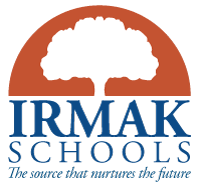At Irmak Schools, assessment and evaluation is an important part of teaching and learning. Assessment-evaluation helps teachers and students set new goals through reflection by determining what students know, what they have understood and what they can do at different stages of the learning process. The recorded results of the assessments provide feedback to students, teachers and parents through reports. Regular evaluation of the program with the participation of teachers and school administration contributes to the improvement of the program over time.
Evaluation is a continuous effort to provide feedback to students, families, teachers, school administrators and program coordinators about the learning process and the strengths and areas for improvement in the content of the program.
Our departmental goals are:
- to provide effective feedback to students, teachers, parents and school management,
- to collect data about the student’s performance, keep records and prepare reports based on the information collected,
- to determine what students know, what they have understood and what they have learned during the learning process,
- to organize and plan teaching according to individual differences,
- to provide opportunities for students to reflect,
- to strengthen our learning process and practices as a community of learners,
- to continuously improve the program.
The success of the student is determined by written and practical exams, in-class participation, homework and projects according to the nature of the course based on the curriculum. At the beginning of the academic year, an exam calendar is developed and shared with parents and students by using a balance of traditional exams and innovative methods. Through formative assessments, areas that need to be supported in the learning process are identified and differentiated individual plans are created.
Within these plans, readiness exams are administered at the beginning of the academic year. These exams consist of knowledge and acquisitions that are prerequisites for the new topics that students will learn and studies are carried out to support the students.
Pre- Assessment
It is a process carried out before facilitation of learning in order to find out learners’ preliminary knowledge. Preliminary knowledge is determined via methods and techniques suitable for course content of the related field such as studies that make the ideas visible (e.g. What do I know? What do I want to learn?, What I See- Understand – Wonder, Frayer Model), mind maps, exit cards.
Formative Assessment
Formative assessment is determination of the level of learned information with a perspective of facilitating reflection and retrospective planning. It is used to find out the impact of anticipated planning on the learner group. Academic Assessment Exams (AAEs) are administered on the dates specified in the exam calendar as part a part of learning in order to determine the level of achievement of the learning outcomes in the curriculum on a student, class and grade basis and to evaluate the process. Evidence is collected via exit cards, quizzes, peer assessment, self-assessment, techniques making the ideas visible, poster work, observation, presentation, etc. Formative assessment is carried out during the learning process, and is continuous.
Summative Assessment
Summative assessment is carried out after the learning is completed with all planning – implementation stages in the learner community. It is the stage where learning is measured. It enables assessment of the development and what has been learnt.
In IB MYP, evaluation is performed on an assessment basis, and there are four criteria in each course group as A, B, C and D. These criteria vary by subject. Criteria rubrics for the years specified in the course group guides are used for summative assessment. In order for the grades given in summative assessments to be consistent for each student, standardization studies are carried out in all disciplines on how student work will be examined and evaluated.
Student achievement is determined on the basis of exam scores and performance works. Teachers conduct studies, exams and projects to determine students’ performance according to the basics of the assessment policy, the objectives and the learning outcomes of the course. Accordingly, in middle school, students are given two written exams per semester in each subject and students are evaluated with 3 in-class performance grades in line with the criteria shared with the students at the beginning of the year.. Students’ grades are entered into the e-school system by teachers. The grades entered into e-school are transferred to the report cards at the end of each semester and shared with students and parents.
PROGRESS REPORTS AND MYP REPORT CARDS
The IB philosophy emphasizes providing students with feedback and opportunities for reflection upon development. To fulfill this MYP requirement, MYP progress reports are issued at the end of 1st term, and MYP report cards are issued at the end of year, and shared with students and parents over the Toddle system.
MYP progress report contains teacher comments and constructive feedback about student development.
The MYP Report Card includes the criteria for each course group, the end-of-year grades and teacher comments based on the assessments made, the ATL (Approaches to Learning) development observation assessments, which are a set of skills emphasized in the courses that aim to enable students to take ownership of their own learning, solve the problems they face, make independent decisions, and be successful in their school and life, service work as action for the courses, and community project grades in 7th grade.


